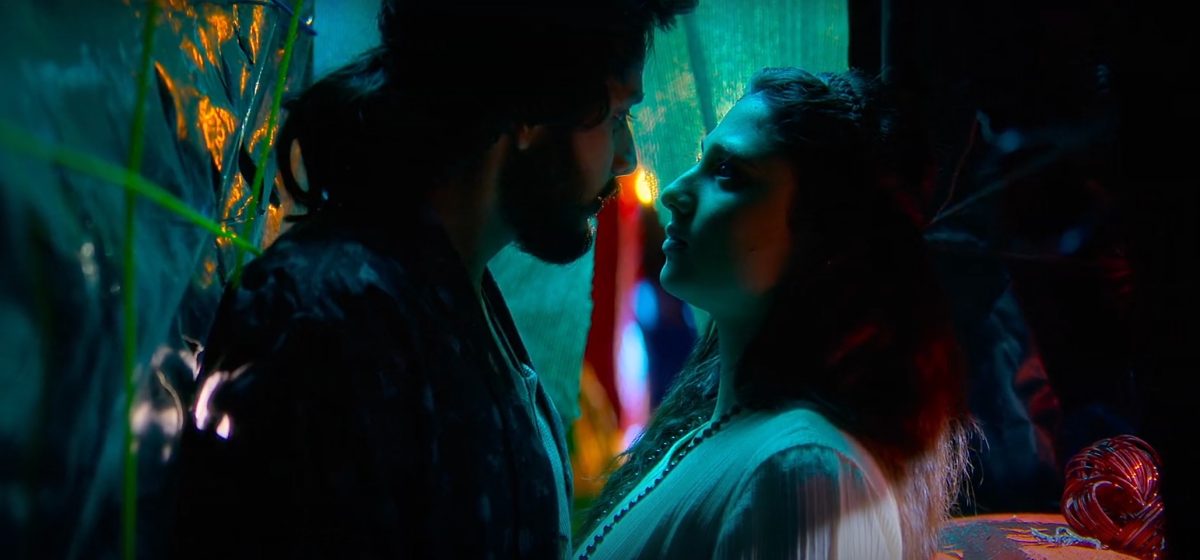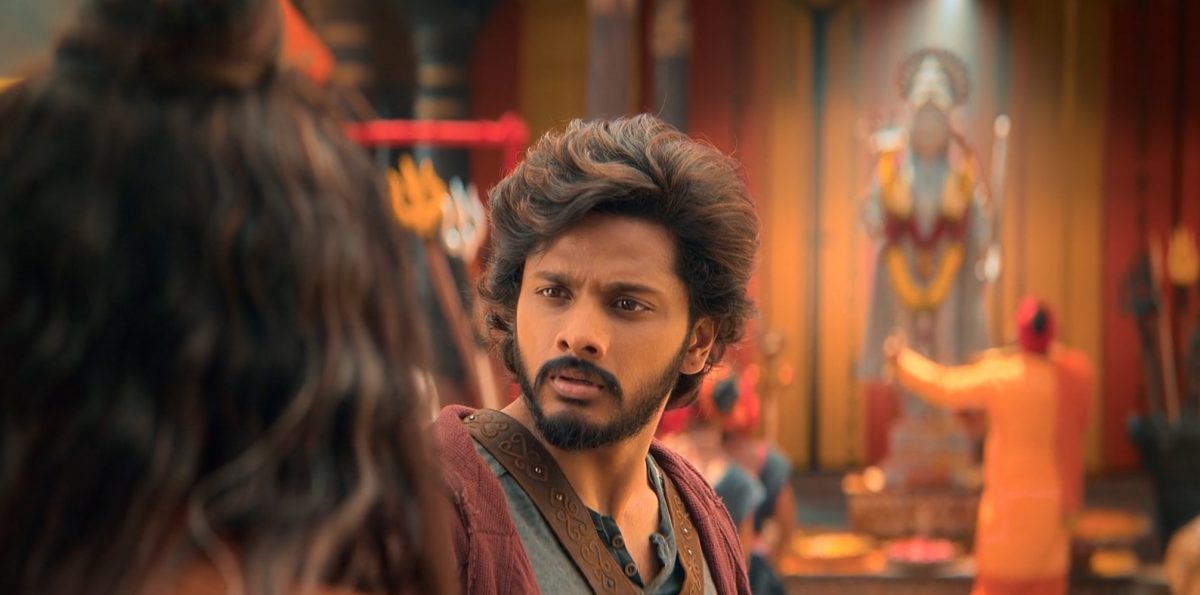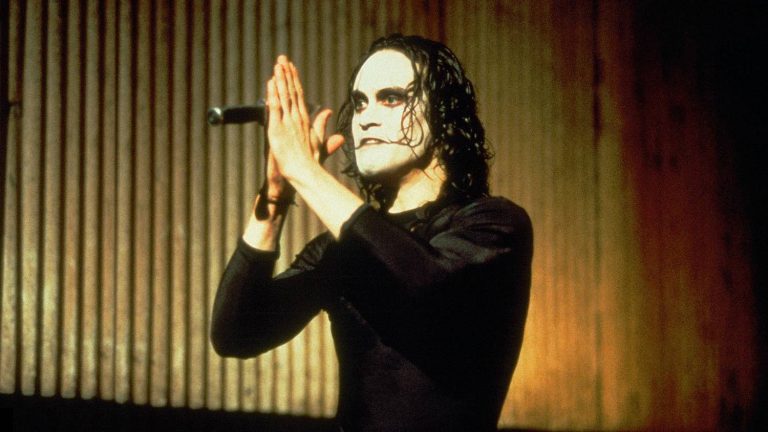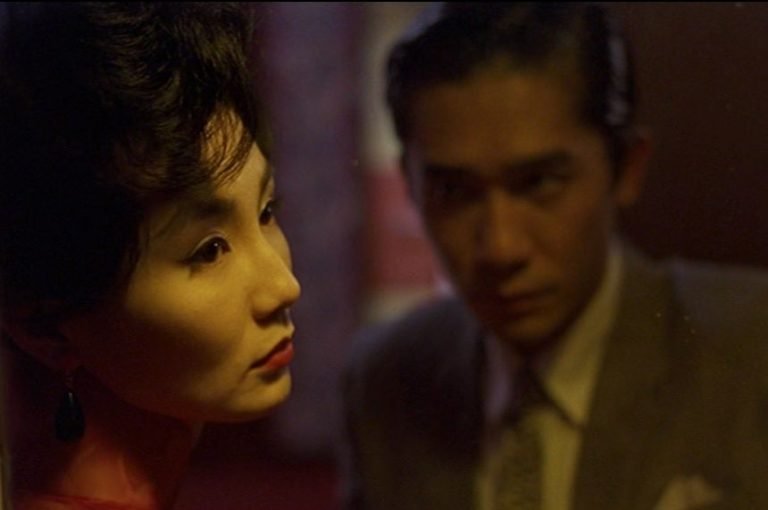“Mirai” (2025), directed by Karthik Gattamneni, fuses mythological grandeur with the pulse of a superhero epic, weaving a story where divine power clashes with human frailty. Beneath its dazzling spectacle runs a deeply human current — a tale of inheritance, sacrifice, and the fragile pursuit of righteousness when destiny itself thirsts for blood. At its core, Mirai poses a piercing question: If power is divine, can humanity ever be worthy of it?
Spoilers Ahead
Mirai (2025) Plot Summary & Movie Synopsis:
The story begins centuries ago with Emperor Ashoka, who is not a remorseful figure but is instead a warrior gifted by the gods. Following the bloody Kalinga War, Ashoka divides his divine power into nine sacred texts, eight are to be entrusted to regional guardians, and one, the Tome of Immortality, to a priest. Each generation comes to protect those books of the sacred text so that the world will never fall to darkness again. But now, that darkness has returned.
Who is the Black Sword, and Why is He Collecting the Tomes?
The film’s primary antagonist, Mahabir Lama, also known as the Black Sword, has already obtained six of the nine tomes by the time we meet him. His name is whispered in fear. His weapon, a blade laced with dark tantric energy, seems to drink light itself. Mahabir isn’t a one-note villain. His origin story is rooted in rejection.
His mother was branded a witch and executed. Every attempt at goodness he made was credited to divine mercy rather than his own virtue. Spurned by gods and men alike, he concluded that divinity was hypocrisy. If the gods would not love him, he would destroy them. His goal: merge the nine tomes to ascend as a dark god and reshape creation in his own image.
Who is Vedha, and How is He Connected to Ambika’s Prophecy?
Parallel to Mahabir’s ascent, we meet Ambika (Shriya Saran), a clairvoyant sage who foresees Mahabir’s rise. Her meditation reveals a vision of the world engulfed in shadow. Desperate for guidance, she journeys to Mount Kailash to seek Agastya, the immortal sage of both Ramayana and Mahabharata. Agastya confirms her fears; the Black Sword’s rise cannot be stopped by ordinary means.
Yet, he offers hope: a divine weapon named Mirai and a child destined to wield it. That child is Ambika’s unborn son, Vedha. But for the child to become strong enough, he must be raised not as a prince of light but as a man of hardship. Ambika accepts this divine command. She gives birth to Vedha and abandons him in Varanasi, choosing exile and death over the comfort of motherhood. Her sacrifice births the film’s central theme: to create a savior, one must first surrender love.

How Does Vedha Discover His Powers?
Years later, Vedha is a small-time thief living by his wits in Hyderabad — mischievous, reckless, but with an unshakable moral core. When we first see him, he’s faking unconsciousness to outwit a gangster who accuses him of theft. It’s a sequence played for humor but quietly hints at divine instinct, his ability to read danger and survive. Vedha meets Vibha, Ambika’s clairvoyant disciple, who seeks the child of prophecy.
When she attempts to read Vedha’s mind, she’s stunned that she cannot. The boy’s consciousness is shielded by something divine. Vibha reveals his destiny, the tomes, and the story of his mother. Vedha laughs it off until life forces him to believe. In a striking scene, he steals a car to prove his free will, only to discover kidnapped children inside. Fate uses him to do good, even when he resists. Each accident reveals Vedha’s innate righteousness, his instinct to protect. Beneath the thief’s façade lies a warrior waiting to awaken.
Why Does Mahabir’s Past Matter to His Villainy?
Mahabir’s backstory mirrors Vedha’s, but in darkness. After being shunned and watching his mother’s death, he chose vengeance over virtue. Taken in by a sage named Adiguru, Mahabir learns the sacred art of tantra alongside Adiguru’s own son. But ambition corrupts him — he begins practicing forbidden rituals, binding villagers to his will through cursed bracelets.
When confronted, he retaliates by enslaving his entire village. Only Ambika’s intervention frees them, an act for which she sacrifices her life. Mahabir’s hatred for her legacy fuels his campaign. The son she gave up, Vedha, becomes the living embodiment of everything Mahabir despises: divine favor, destiny, and redemption.
How Does Vedha Obtain the Weapon Mirai?
After Mahabir’s agents burn Ambika’s ashram, Vibha is captured, and Vedha is nearly killed. But even as he bleeds, he performs the meditative mudra taught by Agastya, interlacing his fingers to align mind and spirit. In a luminous vision, neurons ignite across his body, healing him. A mark appears on his chest, glowing like a constellation. It’s a celestial map pointing toward the Himalayas, the resting place of Mirai.
Following the map, Vedha reaches a snow-covered cave guarded by a giant bird, a descendant of Jatayu, the divine eagle from Ramayana. The bird attacks, testing his resolve. When Vedha calms himself and extends his hand in peace, the creature yields. Inside, he finds Mirai, an ornate staff humming with silent power. The scene marks Vedha’s proper initiation, from orphan to divine warrior.

What Does the Weapon ‘Mirai’ Symbolize?
Mirai translates to future. It embodies both destiny and the responsibility that comes with power. To wield it, Vedha must overcome ego and anger, the very emotions that destroyed Mahabir. Later, when the staff transforms into Sharnga, Lord Rama’s celestial bow, its symbolism becomes clear: Mirai represents not destruction, but balance, the equilibrium between dharma (duty) and karuna (compassion). It is the weapon of those who fight, not to dominate, but to preserve.
Mirai (2025) Movie Ending Explained:
What Happens During the Final Battle at Kumbh Mela?
Mahabir’s plan culminates at the Kumbh Mela, where millions gather in devotion. His agents distribute enchanted bracelets that enslave the minds of worshippers, turning faith itself into bondage. As the sky darkens, his silhouette looms like a god of chaos. Vedha intercepts a train carrying the ninth tome. Mahabir attacks, derailing it. In a breathtaking sequence, Vedha channels Mirai’s energy through his body to stop the train at the edge of a broken bridge, the same bridge Ambika once crossed to seek Agastya.
Then, the inevitable clash: Mirai versus the Black Sword. Each strike is mythic, echoing through time. When their weapons lock, they swap blades, momentarily wielding both light and darkness. Both fall into the abyss, but the divine bird saves Vedha, proof that nature itself protects sacrifice. Mahabir completes the tomes, achieving godlike power. But Vedha, recalling Agastya’s prophecy, decides not to fight with strength but with surrender. He offers himself. Rain begins to fall as he burns from within, Mirai absorbing his life force. The staff reshapes into Lord Rama’s bow, and Vedha fires the divine arrow that pierces Mahabir’s heart. As Mahabir disintegrates, the bracelets shatter. The enslaved devotees awaken. The sky clears.
What Does Vedha’s Sacrifice Mean?
Vedha’s self-sacrifice is the mirror of his mother’s choice. Ambika gave up her son so he could live; Vedha gave up his life so others may. Their intertwined fates illustrate that salvation in “Mirai” never comes through victory, only by letting go. Mahabir’s death represents more than the fall of evil; it’s the redemption of the abandoned child he once was. The light that kills him also frees him from hate. As dawn rises, Vibha watches feathers drift down from the sky, symbols of Jatayu’s eternal guardianship.
What is the Film Truly About?
“Mirai” transforms the superhero genre into a mythic parable about the human cost of divine destiny. Beneath its visual dazzle lies a spiritual truth: power, when divorced from empathy, becomes corruption, but when joined with sacrifice, it becomes grace. Vedha’s final act shows that heroism isn’t measured by what one conquers, but by what one chooses to give up. His death brings renewal; his Mirai, the ‘future’, ensures the cycle of protection continues. In the end, “Mirai” is not the story of a man who became a god, but of a god who chose to remain human.






